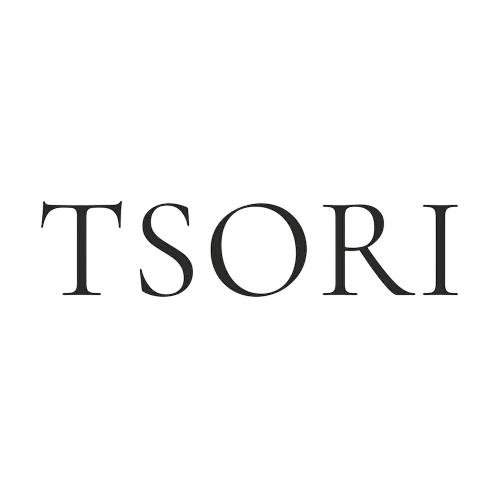
Guide: What to Look Out for in Natural Skincare Brands
What to Look Out for in Natural Skincare Brands
The term "natural skincare" is everywhere—on labels, in influencer captions, and across shelves lined with earth-toned bottles. But behind this marketing language often lies a troubling truth: not all "natural" skincare is created equal. As the founder of TSORI, a radically minimalist, whole-plant skincare brand born from my own search to heal my daughter’s skin, I’ve learned how misleading this space can be.
This post will show you what to look for in natural skincare brands, what to avoid, and how to navigate the noise with discernment.
The Greenwashed Gloss: What Natural Skincare Often Isn’t
It might surprise you to learn how loosely the word "natural" is regulated in the beauty industry. Many products claiming to be natural still include:
- Lab-derived ingredients (like esters or isolates)
- Harsh preservatives like phenoxyethanol
- Synthetic fragrance components listed under vague terms like "aroma"
- A majority of water as the first ingredient (which dilutes potency and requires preservation)
These are what we call greenwashing claims—language designed to make a product appear cleaner than it is. Here's a chart to make it clearer:

Chart: A horizontal bar graph showing five misleading claims in natural skincare, including synthetic preservatives, partial organic labeling, and hidden fragrance components. The most common offense, used by 76% of brands, is labeling a product "natural" while using synthetic preservatives.
And the deception often goes deeper than the ingredient list. Many brands rely on visual language—earth tones, handwritten fonts, imagery of plants or flowers—to signal naturalness without actually delivering it. Words like “botanical,” “eco,” or “plant-based” are often used without any formal definition or regulation.
For example, a serum may contain 90% water, synthetic emulsifiers, and a single drop of a plant extract—yet be marketed as a “natural botanical elixir.” Or a balm might use synthetic waxes like polyethylene or mineral oil, tinted green by mica or chlorophyll, but feature a leaf logo and words like “handmade.”
Even more misleading is the way many companies exploit terms like “clean,” “safe,” or “hypoallergenic”—which carry no legal standard. A product can legally use these terms and still contain ingredients linked to hormone disruption or skin irritation.
The result? Consumers are misled into paying premium prices for products that don’t reflect their values or expectations. Greenwashing erodes trust. It also makes it harder for truly transparent brands to stand out in a crowded marketplace.
The only antidote is education—and a willingness to question what you’re told. Because a product isn’t “clean” just because it looks like it.
How to Tell the Difference Between Greenwashed and Truly Natural Skincare
So how do you separate surface-level branding from true purity? Here are some tangible markers to help you vet a brand:
1. Read the full INCI list.
Don’t rely on the front of the packaging. Flip it over and look at the full ingredient list. If you see ingredients like PEGs, phenoxyethanol, polysorbates, dimethicone, or vague terms like “fragrance” or “parfum,” it’s not truly natural.
2. Look for whole, recognizable plant ingredients.
You should be able to understand most ingredients without needing a chemistry degree. Think oils, butters, herbs, essential oils—not synthetics disguised under scientific names.
3. Watch for ingredient placement.
The first 3–5 ingredients make up the bulk of the formula. If you see water or glycerin listed first, it’s a sign the formula is diluted, requiring preservation and offering less botanical potency.
4. Ask about processing and sourcing.
A truly transparent brand will tell you how ingredients are extracted (cold-pressed? CO2?) and where they’re grown. Sourcing stories and supplier relationships reflect deeper integrity.
5. Consider the scent.
If a product is heavily fragranced or smells synthetic, that’s a red flag. Real essential oils offer subtle, complex scents—not overpowering perfume-like notes.
6. Trust brands that teach.
Real natural brands empower their customers. They share ingredient education, explain their choices, and welcome questions. If the brand is evasive or overly polished, pause.
7. Minimalism is often a clue.
Fewer ingredients, fewer SKUs, and less marketing noise often point to brands focused on quality over quantity. Excess is rarely a friend of true purity.
Ultimately, trust your skin—and your intuition. If something feels overly hyped or too good to be true, it probably is. True natural skincare may be quieter, but its results speak volumes.
What True Purity Means (And Why It’s Rare)
At TSORI, our definition of purity is extreme by industry standards: no synthetics, no isolates, no preservatives, no water. Only whole, organic plant matter, cold-pressed or CO2 extracted, and blended in small batches.
Why is this so rare?
Because it doesn’t scale easily. Because it takes time. Because it limits shelf life. But we believe that the body recognizes nature—not a lab recreation of it. And we’ve seen the results firsthand.
Personal Experience: When my daughter developed eczema as a baby, I spent thousands of dollars and countless hours trying to heal her skin. Dermatologists gave us steroid creams. "Natural" brands left her inflamed. One spring, I began learning about Balm of Gilead. It was sticky. Unconventional. But it worked. Her skin softened. Healed. And so did my trust in the power of whole plants. That balm became the inspiration for TSORI.
What to Look For in Truly Natural Skincare Brands
Here’s your cheat sheet to navigate the shelves (or the sea of online marketing):
1. Full Ingredient Transparency
Look for brands that disclose every ingredient, including what makes up their fragrance (if any). Transparency is a sign of respect. A trustworthy brand won’t hide behind umbrella terms like "parfum" or "proprietary blend."
2. Waterless Formulas
Water is a filler. It makes up 70–95% of most skincare products and requires preservatives. Look for oils, butters, and hydrosol-free products to ensure true potency. Waterless formulas are often more concentrated and provide better skin nourishment.
3. No Lab-Created Esters or Isolates
These are often derived from natural ingredients but highly processed. They’re not whole-plant. Your skin knows the difference. Isolates may provide one function, but they lack the synergy and holistic benefit of whole-plant compounds.
4. Organic Certification or Farmer-Sourced Ingredients
Even if a product isn't USDA certified (which is costly), ask about sourcing. Is it wildcrafted? Cold-pressed? CO2 extracted? Does the brand disclose regions, farms, or partnerships? These details show a commitment to quality and sustainability.
5. No PEGs, Parabens, or Phenoxyethanol
These common additives compromise the microbiome, irritate sensitive skin, and aren’t necessary in truly natural formulas. Safer alternatives exist—but even then, ask: is it minimally processed and skin-compatible?
6. Packaging That Protects the Product
Amber glass, UV-resistant bottles, and airless pumps show a brand is serious about maintaining ingredient integrity. Avoid brands that use clear plastic or open jars for sensitive oil-based products—it signals a lack of care in formulation preservation.
7. A Philosophy That Matches the Product
Is the brand minimalist or cluttered with dozens of SKUs? Does their language reflect trust or hype? Do they emphasize results over trends? True natural brands tend to feel grounding, not frantic. Their ethos will echo in their ingredient choices, design, and customer education.
8. Ingredient Integrity Across the Line
Check not just one product but the entire line. Is the cleanser clean but the moisturizer full of synthetics? True integrity is consistent. Holistic brands don’t cut corners when it comes to what goes on your skin.
9. Responsible Scent Practices
If a brand includes fragrance, it should be essential oil-based—and those oils should be steam-distilled or CO2 extracted, never synthetic aroma chemicals. Ask how strong the scent is. Truly natural brands aim for subtlety and harmony, not perfumed punch.
10. Education Over Marketing
Does the brand teach you something? Empower you to make better choices? Or are they just selling you the next miracle fix? The best brands are led by educators, not advertisers.
Case Study: How TSORI Stands Apart
At TSORI, we committed to radical minimalism and transparency. A few ways we put that into practice:
- No water in any formula. Not even hydrosols.
- We disclose our entire ingredient list, including infusion mediums.
- We use Balm of Gilead, a wildcrafted resin few brands dare to handle due to its complexity.
- Our Trinity Lumière 3-in-1 Elixir is made with oils like Kalahari melon, prickly pear, and black cumin—never diluted.
- All scent comes from whole essential oils like blue tansy, sandalwood, and litsea cubeba.
The result? Products that feel like skin food, not just skincare. Skin that learns to rebalance. Customers who use fewer products, not more.

Final Thoughts: Trust What You Can Trace
If there’s one message I want to leave you with, it’s this:
Don’t just read the front label. Read the back. Ask questions. Follow the sourcing.
You deserve skincare that doesn’t just market purity—but embodies it. Your skin, your health, and your peace of mind are worth more than a diluted serum in green packaging.
If you’re just starting your journey, we invite you to explore the clarity of TSORI. No secrets. No synthetics. Just wild plants, slow infusions, and elegant simplicity that honors your skin’s rhythm.

